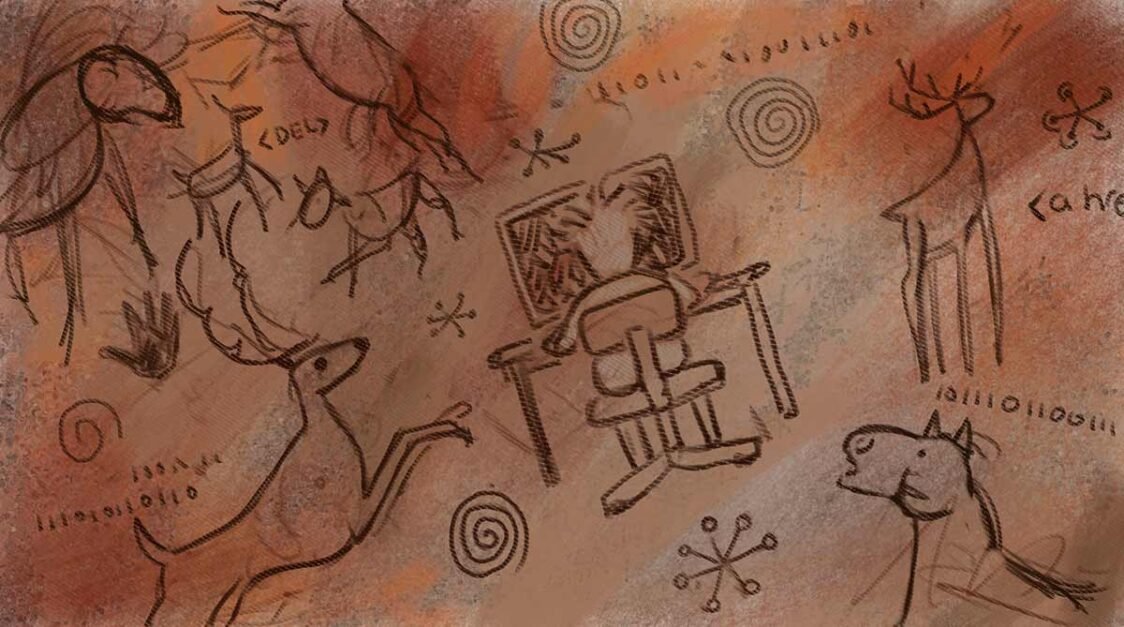I used to love the internet back in the days before social media. It was the Wild West – open to anyone. All you needed to do was register a domain and find a host, then build a website. Of course, you had to learn html and maybe a some javascript, which took a little time. Admittedly, it wasn't for everyone.
Then WordPress blogging software arrived. It was free! And it eliminated the need to learn html and coding language. Just like that we had the power to spout whatever crazy thoughts and opinions we had, sending them out to the whole wide world.
And mostly the world ignored us.
But not always.
A Voice From The Wilderness
In those days there was the chance (however small) that one little website could make a noise far exceeding its stature in the world. One interesting opinion, one compelling blog post, or a uniquely crafted perspective could get picked up and spread to the world by other blogs, or even old media like radio and television.
I'm not fibbing. One always had the chance of striking gold and gaining access to a vast audience, if only for a moment.
In fact, it happened to me. Twice.
The first time was when Sean Hannity, on the air, excerpted a portion of a blog post I wrote. It was political in nature, of course. I can't even remember what it was about. The one thing I remember is that I was driving and listening to his show when I heard my name and then the words I had written. I actually managed to stay on the road. That day my blog traffic blew up. It was a good day.
The second time was when I wrote about my experience at a minor-league baseball game during the post 9/11 fervor. This was when they added the singing of God Bless America in the sixth inning of every game. I was against it because it ruined the flow of the game. It was not at all like the traditional singing of "Take Me Out To The Ballgame" done in between innings. Not at all. Everything stopped. We all had to stand and join in. I thought it was dumb to interrupt a sporting event for what was, literally, a prayer. A national sports radio show picked up my post and subjected me to their own Two Minutes Hate. My traffic blew up again with lots of comments. Mostly angry and condemning me to Hell and the Eternal Lake of Fire.
It's always interesting hearing different opinions, so I rolled with it and had fun engaging everyone from religious kooks to rabid atheists. To my mind, engagement and discussion was the whole point.
In the end I never really stuck with either audience for long. My interests were always a bit more eclectic than just politics and religion. So eventually my traffic died down to a few insomniacs and a bored NSA agent ("Chad? If you're listening – and I'm sure you are – I was nowhere near DC on January 6th. I live in the OTHER Washington.").
Just A Caveman
In those early days, I felt like a neolithic hunter-gatherer. I wandered the vast binary landscapes of the web, hunting dangerous viewpoints and gathering food for thought. Every so often I bagged a mammoth idea and feasted on the response for a month or two. But eventually I'd feel the need to follow the migrating herds of hyperlinks to untamed blogs and wild opinions over the next horizon.
That was my impression of the internet in the late 1990's to the mid 2000's. It was wild and untamed and I loved it.
The Freedom Illusion
Then along came Facebook and social media.
It was free, and it offered a place for everyone. Information was curated, and you were fed daily bytes of the things they thought you liked. It was a safe place where The Algorithm protected everyone from the WrongThink that was found Out There in the untamed internet.
Freedom isn't for everyone, it seems. Facebook offered safety and conformity, and many people were looking for those very things. Eventually many people on social media surrendered their autonomy. They no longer explored the internet on their own. Instead they experienced it via a curated newsfeed on their social media account.
This is how Facebook and social media control us. The "safety" measures they use to "protect" their members are nothing more than bars to a cage. A cage they use to keep members passive and addicted.
Social Media is The Matrix
I tried it for about ten years. Last month I took the Red Pill. I'd had enough. Enough blacklisting my opinions; enough fact-checking jokes (they're jokes!); enough following me around the internet; enough ads. I wanted the independence I had back in the old days.
I quit Twitter in January and I deleted my Facebook account at the end of May.
Aaaaah! Freedom! It's not quite Braveheart level of freedom, but it's something.
I'm once again a hunter-gatherer on the free-range web. No one can tell me where to go, what to do, and what to think. I'm free of the pseudo-security Facebook constructs around its members. Now I go wherever the hyperlinks take me, and it's up to me to decide what I think, what is good, and what is True.
If I ever find myself feeling nostalgic for social media, I'll take a photo of my latest meal.
Or maybe I'll just watch this video:



Comments 2
Don’t forget that now, Google has its thumb on the scale. Have an opinion they like? They’ll make sure everyone sees it.
Likewise, if they don’t? They’ll suppress it.
Author
Real men use DuckDuckGo.